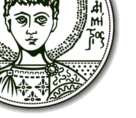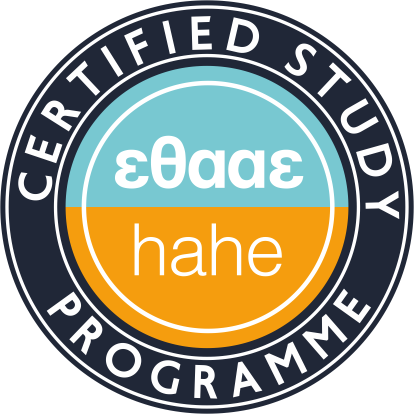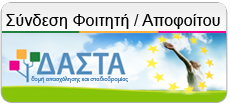Alexiou Evangelos

Evangelos Alexiou studied Classics at the Universities of Athens (B.A. 1987) and Heidelberg (Ph.D. 1994). Since then he has worked as a Post-Doctoral Fellow (supported by DFG) at Heidelberg (1995-1997), where he has also taught (1997), as a Visiting Scholar at Columbia University (1995-1996), as an Assistant Professor (1999-2014), as an Associate Professor (2014-2018) and a Professor (2018) of Ancient Greek Literature at the Aristotle University of Thessaloniki, where he has been teaching ever since. Since 1999 he has been also working (as Author of teaching books, Tutor, and Director of the Course-Unit ‘Introduction to Hellenic Culture’) at the Hellenic Open University. His research interests include Rhetoric, Plutarch and Biography, Second and Third Sophistic, Ethics and History of Ideas in Antiquity.
He is the author of the following books: (1) Ruhm und Ehre. Studien zu Begriffen, Werten und Motivierungen bei Isokrates, Heidelberg 1995 (Bibliothek der Klassischen Altertumswissenschaften 93, Winter Verlag); (2) Ισοκράτης,Ευαγόρας. Ερμηνευτική έκδοση, Thessaloniki 2005 (University Studio Press); (3) Πλουτάρχου Παράλληλοι Βίοι. Η προβληματική των θετικών και αρνητικών παραδειγμάτων (The Parallel Lives of Plutarch. The issue of "Positive" and "Negative" Examples), Thessaloniki 2007 (University Studio Press) (4) Der Euagoras des Isokrates. Ein Kommentar, Berlin 2010 (Untersuchungen zur antiken Literatur und Geschichte 101, De Gruyter Verlag), (5) the chapter "Die Rhetorik des 4. Jahrhunderts", in: B. Zimmermann/A. Rengakos (ed.), Handbuch der griechischen Literatur der Antike, II, München 2014, 734-859, (6) Ρητορική και Ιδεολογία: Ο Φίλιππος Β' της Μακεδονίας στον Ισοκράτη και σε συγχρόνους του (Rhetoric and Ideology: Philip II of Macedon in Isocrates and his Contemporaries), ΚΕΓ, Thessaloniki 2015 (only available online), (7) Η ρητορική του 4ου αι. π.Χ. Το ελιξίριο της δημοκρατίας και η ατομικότητα, Athens 2016 (Gutenberg), (8) Greek Rhetoric of the 4th Century BC. The Elixir of Democracy and Individuality, Berlin 2020 (De Gruyter Verlag). He has also published articles in scholarly journals on Thucydides, Isocrates, Lysias, Xenophon, Plutarch, Dio Chrysostom, and Julian.
| Code No | Title | Credits | Classroom |
|---|---|---|---|
| GREEK 101 | INTRODUCTION TO ANCIENT GREEK LITERATURE: ARCHAIC, CLASSIC AND HELLENISTIC PERIODS | 5 ECTS | |
| GREEK 103 | HISTORIOGRAPHY-RHETORIC | 5 ECTS | |
| GREEK 141 | ANCIENT GREEK PROSE | 6 ECTS | |
| GREEK 157 | PHILOSOPHY | 6 ECTS |
STUDIES - ACADEMIC POSITIONS - SHOLARSHIPS - AWARDS
1983-1987: B.A. in Classics, University of Athens
Papadakis Foundation Scholarship
State Scholarships Foundation of Greece (IKY)
DAAD (Deutscher Akademischer Austauschdienst) Scholarship
Goethe Institute Scholarship
1988-1994: PHD in Classics (Heidelberg University, Seminar für klassische Philologie)
PhD Dissertation: Ruhm und Ehre. Studien zu Begriffen, Werten und Motivierungen bei Isokrates (Supervisor: H. Görgemanns
Fellow of the Loverdos Foundation (Academy of Athens) and of DAAD (Deutscher Akademischer Austauschdienst)
1995-1997: Post-Doctoral Research Program of DFG (Deutsche Forschungsgemeinschaft)
Research Project: Untersuchungen zum Affekt der Orge in Plutarchs Bioi
1995-1996: Visiting Scholar at Columbia University (Νew York)
1997-1999: Professor at the Deutsche Schule Athen
1999-2014: Assistant Professor in Ancient Greek Literature, Aristotle University of Thessaloniki
2014-2018: Associate Professor in Ancient Greek Literature, Aristotle University of Thessaloniki
since 2018: Professor in Ancient Greek Literature, Aristotle University of Thessaloniki
2000-2011: Professor-Tutor and Director of the Course-Unit ‘Introduction to Greek Culture’ at the Hellenic Open University
since 2011: Professor-Tutor of the Course "Ancient Greek and Byzantine Philology" at the Hellenic Open University
2020: Award of Excellence in the Humanities (Aristotle University of Thessaloniki)
2022: Award for the best monograph in Classical Philology in the last three years for the book "Greek Rhetoric of the 4th Century BC. The Elixir of Democracy and Individuality, De Gruyter Verlag, Berlin 2020, p. 361" (Academy of Athens)
PUBLICATIONS
A. ΜONOGRAPHS
1. Ruhm und Ehre: Studien zu Begriffen, Werten und Motivierungen bei Isokrates, Bibliothek der Klassischen Altertumswissenschaften 93, Winter Verlag, Heidelberg 1995
Reviews: M. Vallozza, Gnomon 72 (2000) 101-102; W. Stockert, Wiener Studien 112 (1999) 235; M. Erler, Anzeiger fuer die Altertumswissenschaft 51 (1998) 72-73; P. Demont, Revue des Etudes Grecques 112 (1999) 765-766; J. Signes Codoner, Emerita 65 (1997) 355-358; Α. Ρεγκάκος, Ελληνικά 47 (1997) 227-228; U. Walter, Gymnasium 103 (1996) 262-264
2. Ισοκράτης, Ευαγόρας. Ερμηνευτική έκδοση, University Studio Press, Thessaloniki 2005
Reviews: Κ. Αποστολάκης, Εν κύκλω 1 (2009) ηλεκτρ. περιοδ.; J. Gruskova, Wiener Studien 120 (2007) 308; A. Markantonatos, Bryn Mawr Classical Review 2007.13.02; Ι. Περυσινάκης, Ελληνικά 56 (2006) 395-399; Θ. Παππάς, Τεκμήριον 6 (2006) 229-233
3. Πλουτάρχου Παράλληλοι Βίοι. Η προβληματική των θετικών και αρνητικών παραδειγμάτων (The Parallel Lives of Plutarch. The issue of "Positive" and "Negative" Examples), University Studio Press, Thessaloniki 2007
Review: J. Beneker, The Classical Review 62 (2012) 450-452
4. Der Euagoras des Isokrates, Euagoras. Ein Kommentar, Untersuchungen zur antiken Literatur und Geschichte 101, De Gruyter Verlag, Berlin 2010
Reviews: P. Roth, Gnomon 84 (2012) 73-75; T. Haegg, Bryn Mawr Classical Review 2011.06.24
5. Die Rhetorik des 4. Jahrhunderts, in: B. Zimmermann/A. Rengakos (ed.), Handbuch der griechischen Literatur, II, Munchen 2014, 734-859
6. Ρητορική και Ιδεολογία: Ο Φίλιππος Β' της Μακεδονίας στον Ισοκράτη και σε συγχρόνους του (Rhetoric and Ideology: Philip II of Macedon in Isocrates and his Contemporaries), ΚΕΓ, Thessaloniki 2015
7. Η ρητορική του 4ου αι. π.Χ. Το ελιξίριο της δημοκρατίας και η ατομικότητα, Gutenberg, Athens 2016
Review: A. Kapellos, Erga-Logoi 5 (2017) 1-8
8.Greek Rhetoric of the 4th Century BC. The Elixir of Democracy and Individuality, De Gruyter Verlag, Berlin 2020
Review: M. Edwards, Sehepunkte 20 (2020) Nr 12; M. Heath, Greece & Rome 68 (2021) 114-115; K. Piepenbrink, Historische Zeitschrift 312 (2021) 477-479
Β. ΑRTICLES
1. «Τιμή, δόξα και καλοκαγαθία στον Ισοκράτη: Περί Αντιδόσεως §§ 275-285», Platon 47/48 (1995/96) 68-79
2. «Η παρουσία του Ομήρου στο έργο του Ισοκράτη: παιδεία και πολιτική προπαγάνδα», HOMERICA. Proceedings of the 8th International Symposium on the Odyssey, Ithaki 1998, 283-298
3. «Ουκ από δρυός ουδ’ από πέτρης. Plutarch Consolatio ad uxorem 608C und die Umdeutung eines Homerverses», Mnemosyne 51 (1998) 72-75
4. «On APATHEIA in Plutarch’s Lives», in: M. Baumbach/H. Köhler/A. M. Ritter (eds.), MOUSOPOLOS STEPHANOS. Festschrift für Herwig Görgemanns, Heidelberg 1998, 380-389
5. «Zur Darstellung der ORGE in Plutarchs Bioi», Philologus 143 (1999) 101-113
6. «Parallelität und die moralischen Ziele Plutarchs: Coriolanus und Alkibiades», Hermes 127 (1999) 61-74
7. «Die Funktion der Homerzitate in Plutarchs Biographien», in: A. Haltenhoff/F.-H. Mutschler (eds.), HORTUS LITTERARUM ANTIQUARUM. Festschrift für Hans Armin Gärtner, Heidelberg 2000, 51-65
8. «Enkomion, Biographie und die “unbeweglichen Statuen”: Zu Isokrates Euagoras 73-76 und Plutarch Perikles 1-2"», Classica et Mediaevalia 51 (2000) 103-117 (= «Εγκώμιο, βιογραφία και τα “ακίνητα αγάλματα“. Ισοκράτης, Ευαγόρας 73-76 και Πλούταρχος, Περικλής 1-2», in: Α. Vassiliadis et alii [eds.], Δημητρίω στέφανος. Τιμητικός τόμος για τον καθηγητή Δημήτρη Λυπουρλή, Thessaloniki 2004, 105-122)
9. «Eστιάζοντας στον πρωταγωνιστή: το βιογραφικό εγκώμιο του Κύρου στην Ξενοφώντος Κύρου Παιδεία», Annual of the School of Philosophy, Department of Philology of the Arisotle University of Thessaloniki 9 (2000-2001) 7-44
10. «Die Kommunikation mit dem Publikum: Dialogszenen bei Isokrates», Würzburger Jahrbücher 25 (2001) 85-98
12. «Η ρητορική στην κλασική αρχαιότητα», in: Ε. Αλεξίου et alii, Γράμματα Ι: Αρχαία Ελληνική και βυζαντινή φιλολογία, vol. 1, Hellenic Open University, Patras 2002, 411-444
15. «Rhetorik, Philosophie und Politik: Isokrates und die homologoumene arete», Rhetorica 25 (2007) 63-87 (= «Ρητορική, φιλοσοφία και πολιτική: ο Ισοκράτης και η ομολογουμένη αρετή», in: Ch. Balla [ed.], Φιλοσοφία και ρητορική στην κλασική Αθήνα, Ηράκλειο 2008, 127-148)
16. «Eunoia bei Plutarch: von den Praecepta Gerendae Reipublicae zu den Viten», in: A.G. Nikolaidis (ed.), The Unity of Plutarch’s Work. Moralia Themes in the Lives, Features of the Lives in the Moralia, Berlin 2008, 365-386
17. «Das Proömium des isokrateischen Euagoras und die Epitaphienreden», Würzburger Jahrbücher 33 (2009) 31-52
18. «Plutarchs Lysander und Alkibiades als ‚Syzygie‘. Ein Beitrag zum moralischen Programm Plutarchs», Rheinisches Museum 153 (2010) 323-352
19. «Εμείς οι Φιλόλογοι και ο διαλεκτικός ανθρωπισμός», Φιλολογική Πρωτοχρονιά 67 (2010) 241-245
20. «Isokrates De bigis und die Entwicklung des Prosa-Enkomions», Hermes 139 (2011) 316-336
21. «Philotimia oder Pleonexia als κακίστη δαιμόνων? Dion von Prusa 17,9 und die geistesgeschichtlichen Konturen eines euripideischen Verses», Rheinisches Museum 156 (2013) 47-73
22. «Ο Βίος Ἀντωνίου του Πλουτάρχου και το Ἀπολείπειν ὁ θεὸς Ἀντώνιον του Καβάφη», Philologos 151 (2013) 44-57
23. «ἀρχὴ τῆς θαλάττης – ἀρχὴ τῶν κακῶν; Θουκυδίδειες – Ψευδοξενοφώντειες ανταγωνιστικές αξίες και η ρητορική της πλεονεξίας στον Ισοκράτη», Hellenica 63 (2013-14) 7-28 (= Ἀρχὴ τῆς θαλάττης – ἀρχὴ τῶν κακῶν? Kompetitive Motivationen bei Thukydides, Ps.-Xenophon und Isokrates, in: C. Kugelmeier [ed.], Translatio humanitatis. Festschrift zum 60. Geburtstag von Peter Riemer, St. Ingbert 2015, 349-368 = Historika. Studi di storia greca e romana. Great is thw Power of the Sea 5 [2016] 405-421)
24. «Θεοδικία στον Πλούταρχο: από το Περὶ τῶν ὑπὸ τοῦ θείου βραδέως τιμωρουμένων στους Παραλλήλους Βίους», in: Ι. Κουρεμπελές κ.ά. (ed.), Ανθρώπινος πόνος και υπαρξιακός προβληματσιμός, Thessaloniki 2013, 35-53
25. «Ο πρωταγωνιστής επί σκηνής: η αλληλεπίδραση του ιδιωτικού και του δημόσιου βίου στον Πλούταρχο», in: Λ. Αθανασάκη/Τ. Νικολαΐδης/Δ. Σπαθάρας (ed.), Ιδιωτικός βίος και δημόσιος λόγος στην ελληνική αρχαιότητα και τον διαφωτισμό, Herakleion 2014, 341-37727. «Ρητορική και φιλοσοφία. Η σατιρική παρώδηση του Μ. Κωνσταντίνου στο Συμπόσιον ή Κρόνια του Ιουλιανού Παραβάτη», Platon 60 (2015) 367-397
26. «Μεταξύ φιλολογίας και θρησκείας: Λουκιανός ο Σαμοσατεύς, "βλάσφημος ή σατιρικός";», Philologos 157 (2014) 353-364
27. «The Rhetoric of Isocrates' Evagoras: History, Ethics and Politics», in: Ch. Bouchet/P. Giovanelli-Jouanna (ed.), Isocrate. Entre jeu rhetorique et enjeux politiques, Lyon 2015, 47-61
28. «Die Spiegelfunktion der isokratischen Rhetorik: Der lakonisierende Schüler und die Pleonexie großen Stils», in: M. Tziatzi et al. (ed.), Lemmata. Beiträge zum Gedenken an Christos Theodoridis, Berlin 2015, 73-90
29. Review, Wolfgang Will, Demosthenes, Darmstadt 2013, Gnomon 88 (2016) 421-427
30. «Isokrateszitate in der aristotelischen Rhetorik und das "Schweigen" über Demosthenes», Hermes 144 (2016) 401-418
32. «Divisions in Greek Culture: Cultural Topoi in Plutarch’s Biographical Practice», in: A. Georgiadou/K. Oikonomopoulou (ed.), Space, Time and Language in Plutarch, Berlin 2017, 229-236
33. «Η παραδειγματική λειτουργία του μύθου των Αιακιδών στον Εὐαγόραν του Ισοκράτη», in: Πρακτικά Α΄ Διεθνούς Αυνεδρίου Αρχαία Κυπριακής Γραμματείας: Η Αρχαία Κυπριακή Γραμματεία ανά τους αιώνες, Nicosia 2017, 141-164
34. «Isokrateszitate in der aristotelischen Rhetorik und das „Schweigen“ über Demosthenes», Hermes 144 (2016) 401-418
35. «Tόπος ἐγκωμιαστικός (Polybius 10.21.8): the Εncomium on Philopoemen and its Ιsocratic Βackground», in: Ν. Miltsios/M. Tamiolaki (ed.), Polybius and his Legacy: Tradition, Historical Representation, Reception, Berlin 2018, 241-255
37. «Competitive Values in Isocrates and Xenophon: Aspects of Philotimia», in: M. Tamiolaki (ed.), Special Issue. Xenophon and Isocrates. Political Affinities and Literary Interactions, Trends in Classics 10, Berlin 2018, 114-133
38. «Die Wurzeln der europäischen Rhetorik: Der Logos als Bild der Persönlichkeit bei Isokrates», in: N. Gutenberg/P. Riemer unter Mitarbeit von A. Karanasiou (ed.), Detailstudien zur Fakten- und Theoriegeschichte der europäischen Rhetorik, Berlin 2018, 87-104
39. «Rhetoric, Poetry and the agelaioi sophistai: The innovative Isocrates», in: A. Markantonatos/E. Volonaki (ed.), Poet and Orator. A Symbiotic Relationship in Democratic Athens, Trends in Classics 74, Berlin/Boston 2019, 305-327
40. «Η ρητορική της προσωπικότητας: ο λόγος ως εἴδωλον ψυχῆς στον Ισοκράτη», in: Α. Μαρκαντωνάτος / Β. Λιοτσάκης (ed.), Ἀγαθός τε καὶ σοφός. Τιμητικός τόμος εις μνήμην του Φάνη Ι. Κακριδή, Ioannina 2022, 9-34
41. «Rhetoric and Philosophy. The Satirical Parody of Constantine the Great in the Symposium or Cronia of Julian the Apostate», στο: C.P. Christou/P. Katsoni/C.A. Bozinis (επιμ.), Constantine the Great and his Age. 1700th Anniversary of the Edict of Milan, Thessaloniki 2022, 307-331
42. «Die Formung des griechischen Menschen: η κλασική φιλολογία του Werner Jaeger και το παράδειγμα του Ισοκράτη», in: Α. Μαυρουδής (ed.), Ἔτος ἦλθε περιπλομένων ἐνιαυτῶν ἑκατοστόν …Τιμητικός Τόμος για τον Καθηγητή-Ακαδημαϊκό Ν. Χ. Κονομή, Athens 2023, 417-435
RESEARCH INTERESTS
1. Isocrates
2. Rhetoric and Historiography
2. Plutarch
4. Biography
3. Second Sophistic (Dio Chrysostom, Lucian)
4. Julian and third Sophistic
5. Ethics
6. History of Ιdeas in Αntiquity


